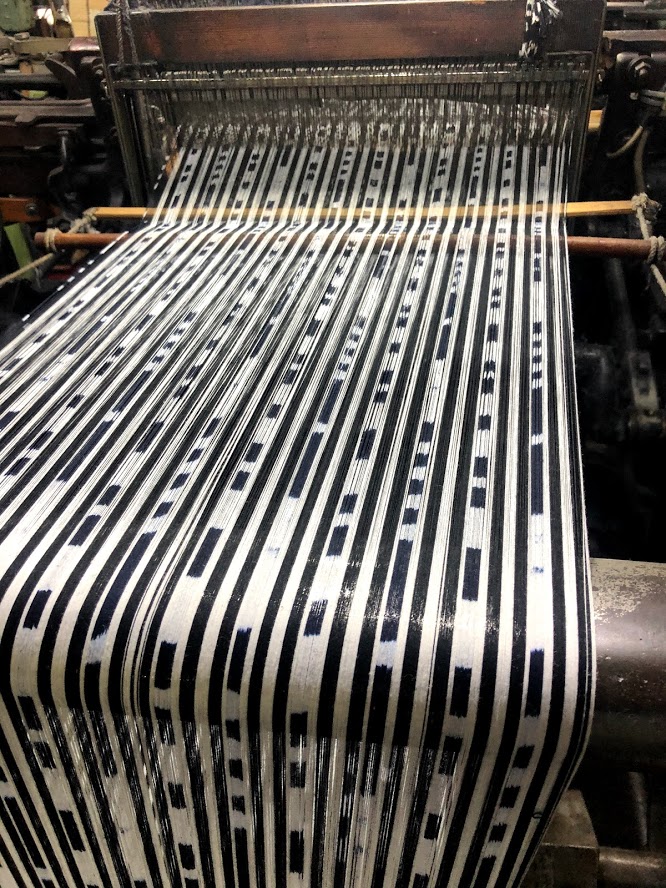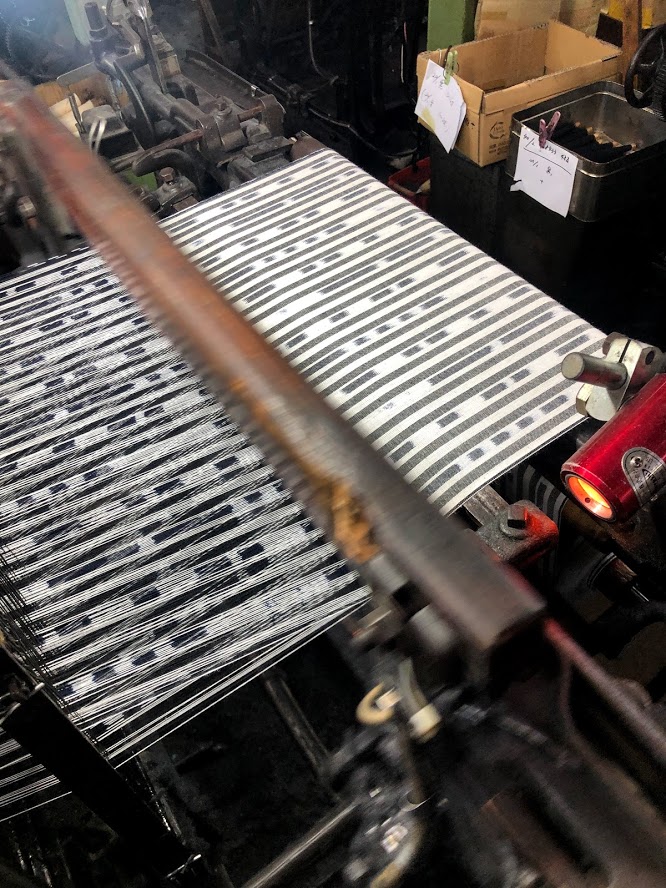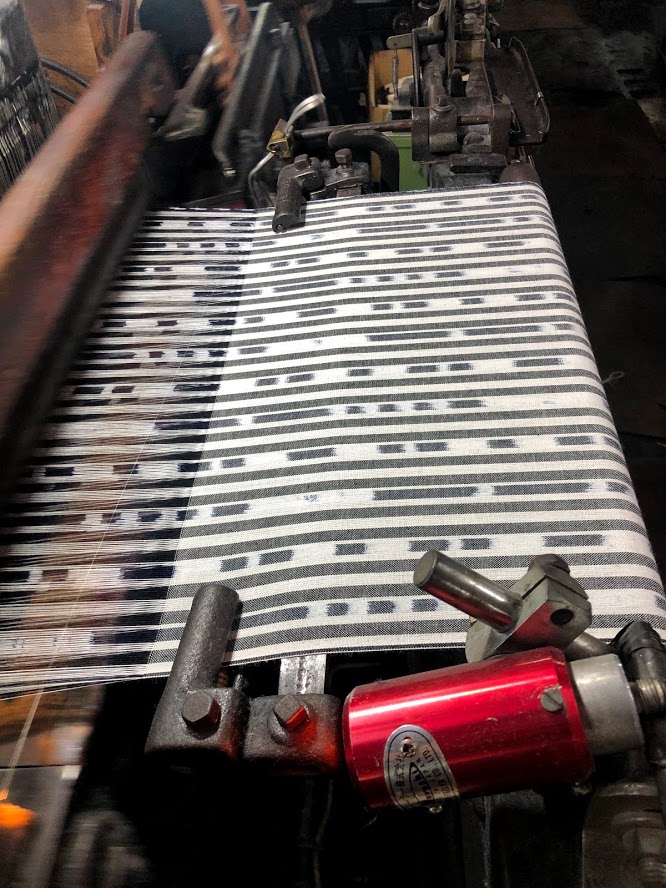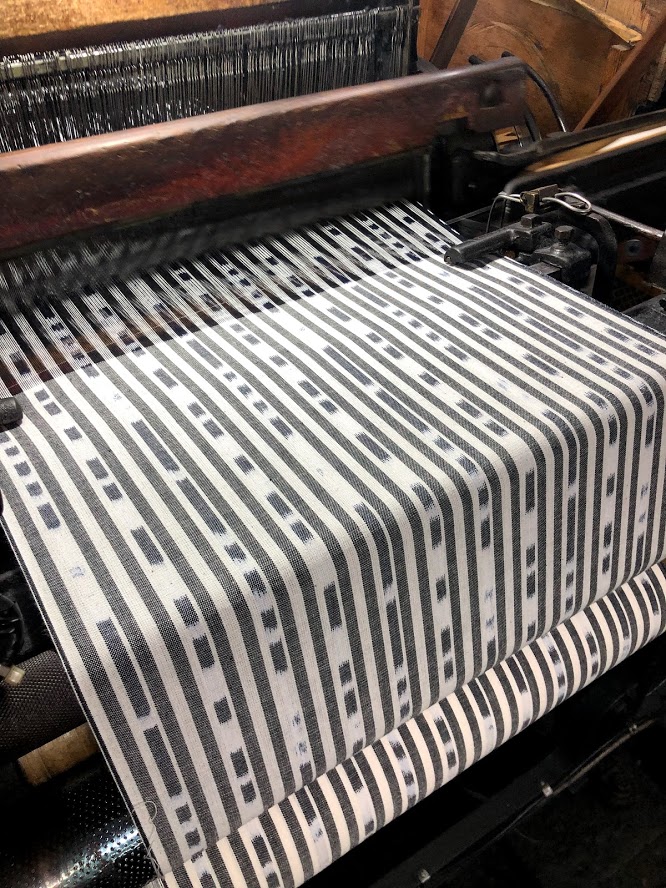
<Specification>
Warp: cotton 30/2 40/2
Weft: Cotton 20/1
Dye: 100% chemical dye
Length: 12 roll (144m)

It is also fun to make Kachisho patterns such as “polka dots” and “Ya Kasuri” or geometric patterns, but the expression of randomly arranged free patterns is also a feature of “Tate Kasuri”.

In the first place, when a pattern is made using the Kukuri technique, thread “loss” occurs. The amount of threads required for the pattern designed on the design paper does not necessarily match the minimum amount of threads (thread bundle) required to bind the threads in the “Kukuri process”. When you take out the actual required amount of yarn along the design paper from the amount of yarn (bundle of yarn) required to work in the “Kukuri process”, “excessive” yarn occurs. From this point on, the question is “interpretation,” but is it simply treated as extra thread, or is it better utilized? Naturally, I also choose to design and utilize a different handle for this thread. Although it may not always have been the purpose of making it from the beginning, it is possible to construct patterns that exceed my expectations by utilizing the warp that “accidentally and inevitably occurred”, and the range of expression as a craftsman is expanded.

Shimogawa-Orimono
E-MAIL info@oriyasan.com
URL oriyasan.com
instagram http://instagram.com/shimogawakyozo/
facebook https://www.facebook.com/shimogawaorimono
Twitter @kasuritter
Tumblr kyozoshimogawa
YouTube https://www.youtube.com/channel/UCOZennIqkscFGNJLwnTOyKg